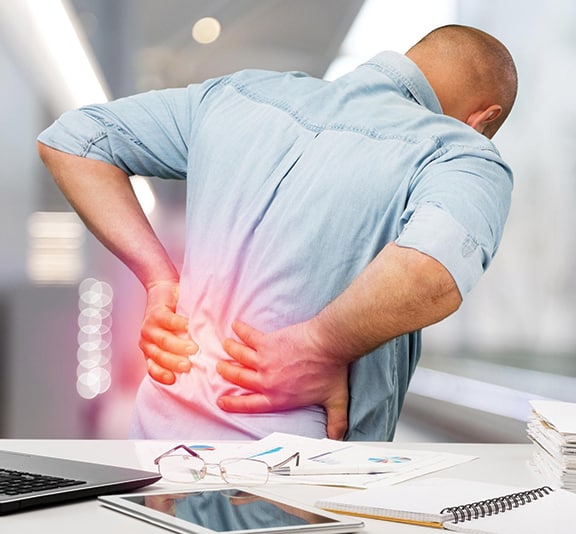

At Surya, we recognise that chronic pain can have a significant impact on your everyday life and overall well-being. Our specialised team of orthopaedic professionals is committed to offering effective pain management options that are suited to your specific requirements. We seek to lessen your pain, increase your functional abilities, and improve your overall quality of life by using a holistic approach that combines innovative techniques, cutting-edge technology, and compassionate care.

Pain Management is a speciality area of medicine that aims to improve the quality of life for people with acute or chronic pain disorders by reducing and managing pain. In addition to reducing pain intensity, the objective is to treat the underlying causes of the condition and enhance general well-being. Many factors, such as wounds, illnesses, surgeries, or Neurological problems, can cause pain. Multidisciplinary approaches to pain management include medicinal interventions, Physical Therapy, Psychological support, and lifestyle changes. Individualized treatment regimens may involve prescription drugs, injections, physical therapy exercises, cognitive-behavioural therapy, and complementary therapies like acupuncture. The objective is to enable people to perform at their best, successfully manage their pain, and improve their general quality of life.
For many illnesses, both acute and chronic, where pain plays a major role in the patient's experience, Pain Management is important. The following conditions frequently call for Pain Management:
Even though a patient's account of their pain is frequently subjective, several diagnostic procedures and evaluations might offer insightful information. Typical pain management diagnostic tests include:
X-rays: Helpful in identifying fractures or abnormalities in the joints and in seeing bones.
MRIs, or magnetic resonance imaging, are helpful in spotting problems with muscles, ligaments, and nerves because they offer comprehensive images of soft tissues.
Computed tomography, or CT scan: Provides fine-grained cross-sectional images that are especially useful for evaluating problems with the spine and joints.
In order to determine the source and intensity of pain, patient descriptions, medical histories, and diagnostic tests are used in the assessment process.
Techniques include prescription drugs, physical therapy, injections, individualised lifestyle modifications, and psychological assistance.
The goal of pain management is to enhance overall quality of life and is appropriate for pain levels ranging from mild to severe.
In addition to non-pharmacological measures like physical therapy or psychological support, pain management regimens may also involve medications.
The duration might range from short-term therapies to continuous management, depending on the underlying reason and each person's reaction.
It is good to be curious when it comes to your health, but, it is equally important to put your curiosity to rest by seeking expert opinion. Have more questions related to your health?
Meet the compassionate souls behind our services. Our dedicated team of professionals is here to ensure you receive the best care, always

